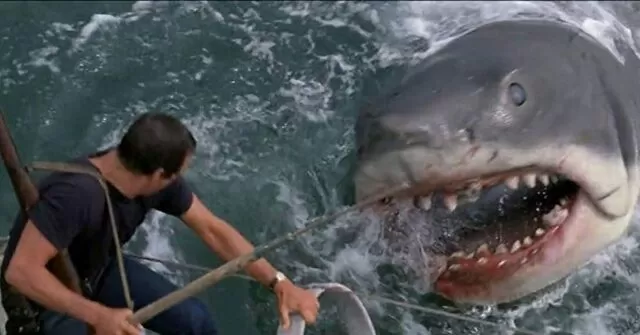The film industry is no stranger to franchises. From the Marvel Cinematic Universe to the Fast and Furious series, movie franchises have become a staple in Hollywood. However, not all franchises are created equal. While some have managed to maintain their quality and captivate audiences for decades, others have fallen flat and failed to live up to their initial success. One such franchise that stands out as a prime example of this is the Jaws franchise.
Based on the novel by Peter Benchley, the original Jaws film was released in 1975 and became an instant hit, grossing over $470 million at the box office and earning critical acclaim. The film, directed by the legendary Steven Spielberg, is considered a masterpiece in the thriller genre and is often credited with creating the summer blockbuster phenomenon. However, the subsequent sequels failed to live up to the success of the original, and the franchise quickly became a cautionary tale of how not to handle a successful film series.
The first sign of trouble for the Jaws franchise came with the release of Jaws 2 in 1978. While the film managed to make a decent profit, it received mixed reviews from critics and failed to capture the same magic as the first film. The plot, which revolved around another great white shark terrorizing the town of Amity, felt like a cheap imitation of the original and lacked the suspense and thrills that made the first film so iconic.
Things only went downhill from there with the release of Jaws 3-D in 1983 and Jaws: The Revenge in 1987. Both films were critically panned and failed to make a significant impact at the box office. The use of gimmicks, such as 3-D technology, in Jaws 3-D did little to save the film from its lackluster plot and poor execution. Jaws: The Revenge, on the other hand, was plagued with production issues and a nonsensical plot that saw the shark seeking revenge on the Brody family. These sequels not only tarnished the legacy of the original film but also left a sour taste in the mouths of fans.
So, what went wrong with the Jaws franchise? One of the main issues was the lack of a clear vision and direction for the sequels. The first film was a perfect blend of suspense, horror, and drama, with a strong focus on character development. However, the subsequent sequels seemed to rely heavily on the formula of a killer shark terrorizing a small town, without adding anything new or innovative to the story. This lack of creativity and originality ultimately led to the downfall of the franchise.
Another major factor that contributed to the failure of the Jaws franchise was the absence of Steven Spielberg. The director, who was responsible for the success of the first film, had no involvement in the sequels. His absence was felt in the lack of quality and attention to detail in the subsequent films. Without Spielberg’s vision and expertise, the sequels felt like cheap knock-offs of the original, and the franchise lost its identity.
Furthermore, the Jaws franchise suffered from the curse of diminishing returns. With each new installment, the quality of the films continued to decline, and audiences became less interested in the series. This led to a lack of enthusiasm and anticipation for the sequels, which ultimately resulted in their failure.
In conclusion, the Jaws franchise stands out as one of the worst in Hollywood history. While the original film is a classic and a testament to the talent of Steven Spielberg, the subsequent sequels failed to capture the same magic and left a stain on the franchise’s legacy. The lack of a clear vision, absence of key players, and diminishing returns all contributed to the downfall of the Jaws franchise. It serves as a cautionary tale for filmmakers on how not to handle a successful film series. Let us hope that Hollywood has learned its lesson and will avoid making the same mistakes in the future.


